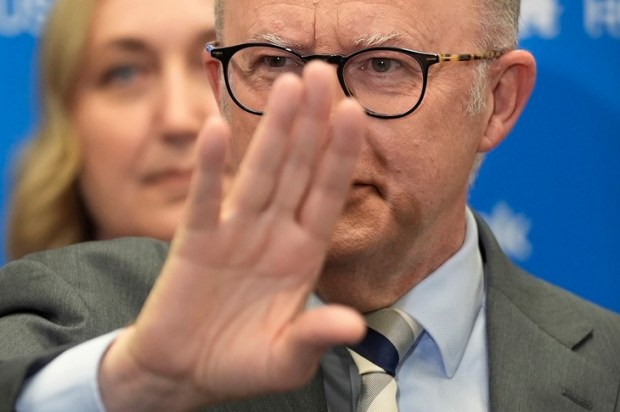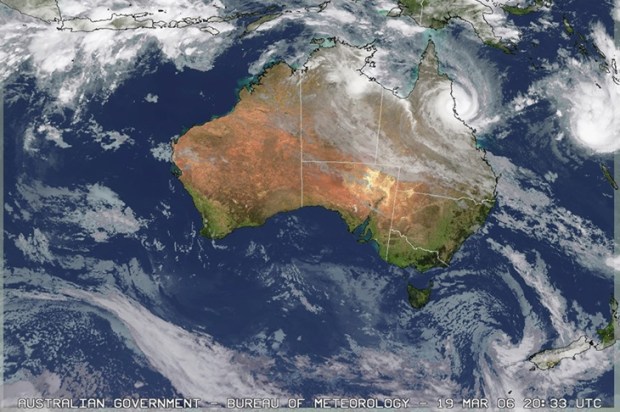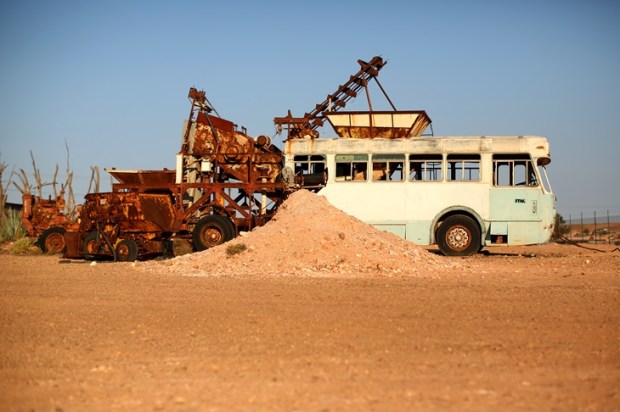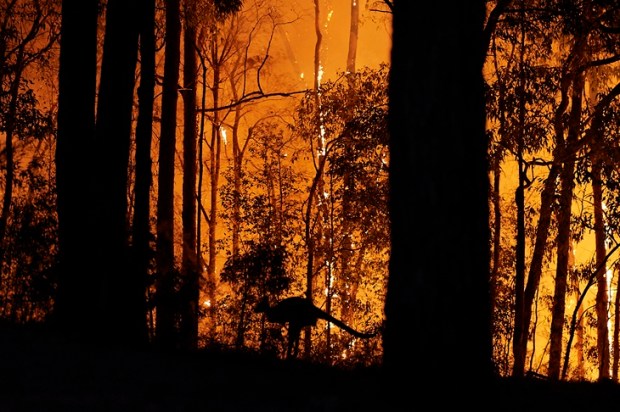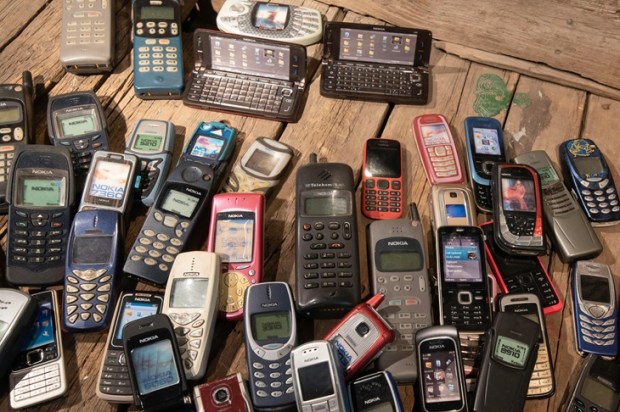When it comes to the Voice debate – like many Australians – I’m over it. I decided a long time ago that it’s a big ‘no’ from me.
I’m reminded of a question posed decades earlier by American physicist Professor Julius Sumner Miller in TV ads promoting a famous brand of chocolate, ‘Why is it so?’
There’s an easy answer… The Voice is a move to enshrine an unelected advisory body in the Australian Constitution which will further divide our great nation on racial grounds. QED, to sum up: in my view, it’s a racist concept.
I can hear the howls of protests erupting within the ‘Yes’ camp, from Prime Minister Anthony Albanese and Minister for Indigenous Affairs Linda Burney, right down through the ranks of Voice advocates and architects such as Noel Pearson, Thomas Mayo, and Teela Reid.
But hang on, there’s a clear message in our National Anthem, ‘Australians let us all rejoice for we are one and free…’ It does not continue, ‘One rule for you and another rule for me…’
That will be the case if the Yes vote, backed by millions of corporate virtue-seeking dollars, finally wins. But despite this sad reality, the Voice has hit a flat note and support continues to plummet in recent polls.
Why is it so? Well, it seems there are a lot of other Australians who are fed up with endless ‘Welcome to Country’ and smoking ceremonies at every major sporting venue or new road opening, the tiresome lectures on TV whenever the Prime Minister spots a microphone, and the empty promises that this will be a purely advisory body with no power to compel Parliament to act…
Does this make us racist for wanting to vote no? Not in my book. Most of us are more concerned with the escalating cost of living, power bills going through the roof despite Labor’s repeated promise to reduce them by $275 annually, along with food and other essentials such as rents and mortgages also escalating. This is all in step with platitudes from Treasurer Jim Chalmers about his great ‘Wellbeing Budget’. I’m not sure what parallel universe or time zone Doctor Jim’s been visiting in his model of the Tardis, but it seems far removed from real life here in real Australia.
Many of us are also aware of the duplicity in promises by the Prime Minister that the Voice will be purely advisory after he gave an assurance following his election victory he would adopt the Uluru Statement from the Heart in full. This statement is distinctly not purely advisory and instead the final vision seems to encapsulate Voice, Treaty, and Truth, as displayed on a T-shirt Albanese was shown wearing after a recent clash with Radio 2GB commentator Ben Fordham. After wrongly accusing Fordham of reading from a ‘No’ campaign leaflet, Albanese vehemently denied that a treaty and reparations would form any part of the Voice.
‘Compensation has nothing to do with what people will vote for in the last quarter of this year,’ Albanese claimed.
But that’s not what the Voice architects mentioned earlier in different interviews. Thomas Mayo has stated the Voice is a campaign tool to ‘punish politicians, abolish colonialist institutions’.
‘There is nothing that we can do that is more powerful than building a first nations’ Voice, a black institution, a black political force to be reckoned with.’
‘Yes’ colleague Teela Reid also spoke about the Voice forcing ‘reparations’ upon non-Indigenous people and ‘redistributing power’.
‘First Nations want the power in their hands, that’s what the Voice is about … a journey with all Australians to begin to demolish the systems that continue to oppress us.’
Linda Burney says the Voice won’t attempt to change Australia Day. Ms Reid says it will abolish it if it wants to. Who is right?
I guess we can’t have Australians celebrating ‘Invasion Day’ even though the British ‘invaders’ have a much better record at advancing their colony here and in other places around the globe than some of their European counterparts. Undoubtedly some bad things happened in the past, there were frontier conflicts, but there was never an official mainland ‘war’. That label, which was borrowed from Canada and America, is a misnomer.
It’s also sad that the Voice debate has heaped vitriol on two leading ‘No’ campaigners, prominent Indigenous figures Warren Mundine and the Opposition’s Shadow Indigenous Affairs Minister, Senator Jacinta Price. Mundine, in particular, has revealed in interviews on Sky News Australia that he twice fell into serious depression from the unrelenting abuse, including from Indigenous people and vocal ‘Yes’ advocates. He is now reportedly seeking professional help, but says he is also worried about Senator Price over similar treatment she and members of her close family have been subjected to.
That’s terrible and I’m sure I stand with many fair-minded Aussies on both sides of the debate in wishing them both well.
But in recent days, faced with the declining polls, the tone of the Yes campaign has mellowed somewhat and it seems to be now more focussed on trusting ‘the vibe’ rather than labelling anyone who disagrees as racist.
The current Parliamentary sittings have done nothing to enhance the Yes case, with the Prime Minister and other Labor luminaries dodging direct questions on the Voice, including the Makaratta Commission’s direct link with treaty and truth. The usual obfuscation, sniggers, sneers, and personal smears offer no transparency to the debate.
Rather than claiming all problems facing Indigenous communities can somehow be solved with an enshrined (but so far undefined) Voice in the Constitution, they should explain why this can’t be achieved by the numerous state and federal indigenous agencies who have received copious funding over many years. This is shown in a direct quote from a Productivity Commission report: ‘Total direct expenditure on services for Aboriginal and Torres Strait Islander Australians in 2012-13 was estimated to be $30.3 billion, accounting for 6.1 per cent of total direct general government expenditure.’
Where has all the money gone, Albanese, if not to the outback communities in most need?
Meanwhile, 812,728 people identified as Aboriginal or Torres Strait Islander origin in the 2021 Census – up from 649,171 in 2016. This represents an increase of 25.2 per cent or 163,557 and was higher than the increase between 2006 and 2011 (20.5 per cent) and between 2011 and 2016 (18.4 per cent).
You don’t have to be a Rhodes Scholar to see the trend here. If the Yes vote succeeds, you can bet the house, if you’re fortunate enough to own it, that a surge of ‘box tickers’ will overload the largesse of any government unless some meaningful checks put a stop to a blank cheque approach for those on the receiving end.
But wait, my grandfather, old Hans, arrived unaccompanied as a penniless teenage Danish immigrant back in the 1880s and worked alongside the Kanakas in the Bundaberg canefields before he eventually bought his own farms. Maybe he had a romp in the hay with a young Islander girl… Maybe there’s a box I can tick as a new-found member of the expanding Givememunni Tribe?
John Mikkelsen is a former editor of three Queensland regional newspapers, columnist, freelance writer, and author of the Amazon Books Memoir, Don’t Call Me Nev.


